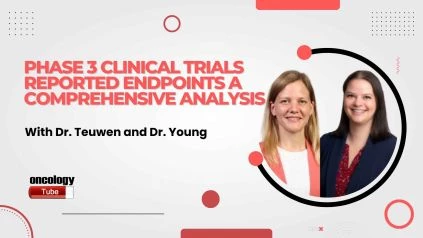Laure-Anne Teuwen, MD, PhD from Antwerp University Hospital, and Joanna Young, DO, FACP from Blue Ridge Cancer Care examined the endpoints evaluated in phase 3 randomized clinical trials (RCTs). The objective of phase 3 RCTs is to demonstrate clinically meaningful benefits for patients.
The researchers conducted a systematic analysis of ASCO22 abstracts from phase 3 RCTs, focusing on primary, secondary, interim, updated, and subgroup analyses. They excluded posthoc, exploratory, biomarker, and retrospective analyses of RCTs.
The analysis identified a total of 166 RCTs, with 93 trials involving 50,781 enrolled patients and 73 trials expected to enroll 52,098 patients.
The majority of trials (64.5%) focused on patients with locally advanced or metastatic cancer, while 35.5% focused on localized cancer. Pharmaceutical or biotechnology companies funded 62% of the trials.
Among locally advanced/metastatic trials, overall survival (OS) was the primary endpoint in 40% of cases, while progression-free survival (PFS) served as the primary or co-primary endpoint in 45% and 13% of trials, respectively.
Other primary endpoints included (invasive) disease-free survival ((i)DFS), event-free survival (EFS), overall response rate, and pathological complete response. In trials without OS as a primary endpoint, it was still a secondary endpoint in 88% of cases.
Within the localized cancer group, the trials were further categorized as adjuvant, neoadjuvant, definitive, and other. In the adjuvant trials (n = 27), (i)DFS was the most common primary endpoint (37%), followed by OS (15%).
Other primary endpoints included recurrence-free survival, invasive breast cancer-free survival, metastasis-free survival, EFS, and PFS.
Interestingly, quality of life (QOL) was never reported as a primary endpoint across all trials.
However, it was mentioned as a secondary or other outcome in 53% of locally advanced/metastatic trials and 42% of localized trials. A comparison between the endpoints reported in the ASCO22 abstracts and meeting materials and those listed on the trial registration websites revealed a discordance rate of 14%.
In conclusion, the phase 3 RCTs presented at ASCO22 involved a substantial number of patients, exceeding 100,000. However, less than half of the trials focusing on locally advanced/metastatic cancer and less than one quarter of the trials focusing on localized disease utilized OS as a primary endpoint.
QOL was included as an endpoint in approximately half of all trials. The analysis also revealed a significant discordance between the endpoints reported in the ASCO22 materials and those listed in trial registration data. These findings emphasize the importance of informed debates regarding the selection of appropriate endpoints for cancer RCTs.

